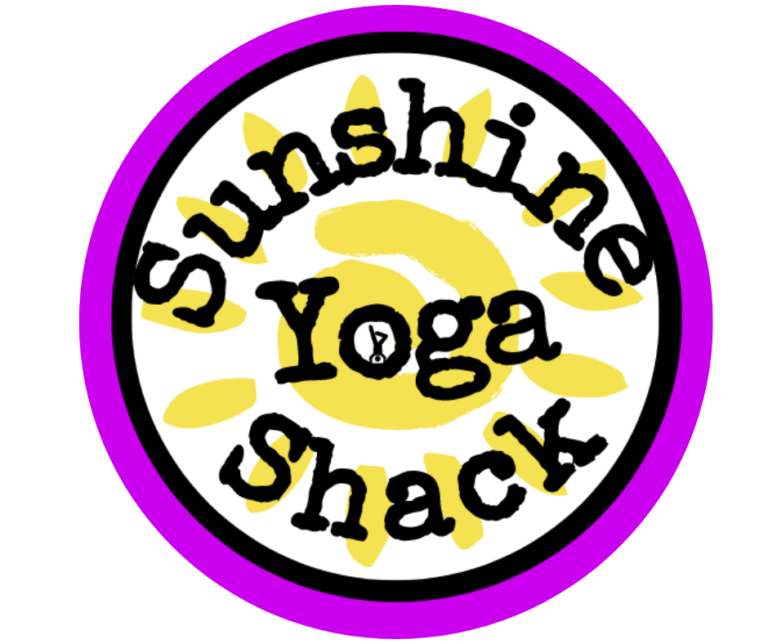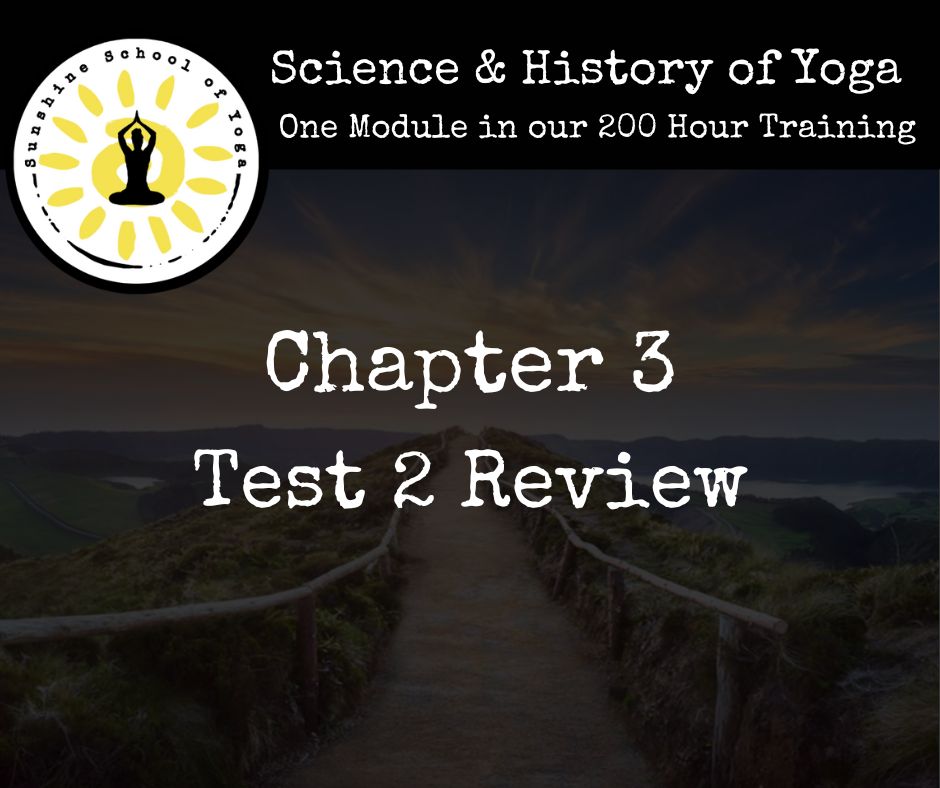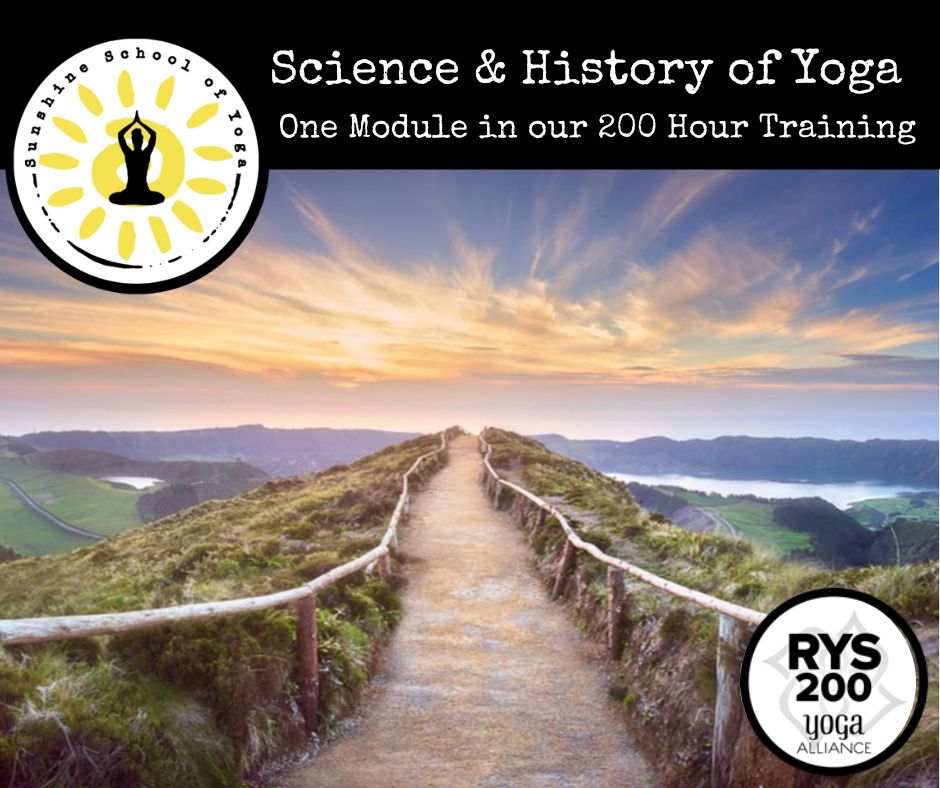
Our 200-hour training program offers aspiring yoga teachers the opportunity to learn the fundamental principles of teaching yoga. Our program is designed to give you the knowledge, skills, and confidence to lead a yoga class successfully.
The comprehensive curriculum gives you an understanding of why yoga works and how to share it with others. Not only will you gain an in-depth understanding of each topic, but you will also deepen your personal practice and understand yoga on the deepest level.
Sunshine School of Yoga’s 200-Hour Teacher Training Program focuses on two 100-hour modules, which can be taken in any order:
The Science and History of Yoga & The Art of Teaching Yoga
Sunshine School of Yoga takes you back to yoga’s roots, explores its rich history, and brings you forward to understand what we know about yoga today.
Yoga Alliance designates these Teacher Training programs that meet or exceed the Yoga Alliance Standards.
Five 20-Hour Chapters
- 4 Yoga Class Logs per Chapter
- 1 Hour of Meditation per Week (4 per chapter) with Journaling
- 1 Homework Assignment per Chapter
- One Test per Chapter
Five 20-Hour Chapters
- 4 Yoga Class Logs per Chapter
- 1 Hour of Meditation per Week (4 per chapter) with Journaling
- 1 Homework Assignment per Chapter
- One Test per Chapter
The Science and History of Yoga
Chapter 1 Foundations of Practice
- Welcome & Introduction
- Chapter One
- The Four Agreements
- Pranayama
- Meditation
- Sun Salutations
- Homework
“Yoga is 99% practice and 1% Theory.â€
K. Pattabhi Jois
We will use this as our mantra for our training and everything that comes after. It is only possible to understand yoga with a dedicated practice of yoga.
“Practice and all is coming,†also Jois

To learn yoga, I believe we must unlearn many of the layers society has laid upon us. The Four Agreements is a book of Toltec wisdom. We learn simple rules to help us start to discover ourselves.

Understand the difference between unconscious and conscious breathing and techniques for guiding students in conscious breathing that slows their breathing rate and expands respiratory capacity.

Become proficient in the naming conventions related to natural breathing and diaphragmatic or belly breathing; characteristics and benefits of natural breathing; and ways to teach belly breathing, the three-part breath, and effortless breathing.
Describe Ujjayi Pranayama and provide a common focal point of concentration. Explain how Ujjayi can help with mindfulness practice and the expected effects that might prompt the practice of Ujjayi. Give instructions for practice.

Knowledge of meditation’s many potential effects and become proficient in explaining yoga philosophy related to thoughts, sensations, suffering, absorption (samadhi), and meditation.

Our process is one of being fully present right here, right now. Meditation is one form of mindfulness, but mindfulness is called by many names: attentiveness, nowness, and presence are just a few. Essentially, mindfulness means wakefulness—fully present wakefulness.

Surya Namaskar is a particular sequence that features a “marriage of breath and movement,†a series of postures and transitions coordinated with a phase of the breath.
You will have one homework assignment and four yoga classes to take and document each chapter.
The Science and History
Chapter 2
The History of Yoga
- Ashtanga Yoga
- Lineage
- Yoga Sutras
- The 8 Limbs of Yoga
- Yama and NiYama
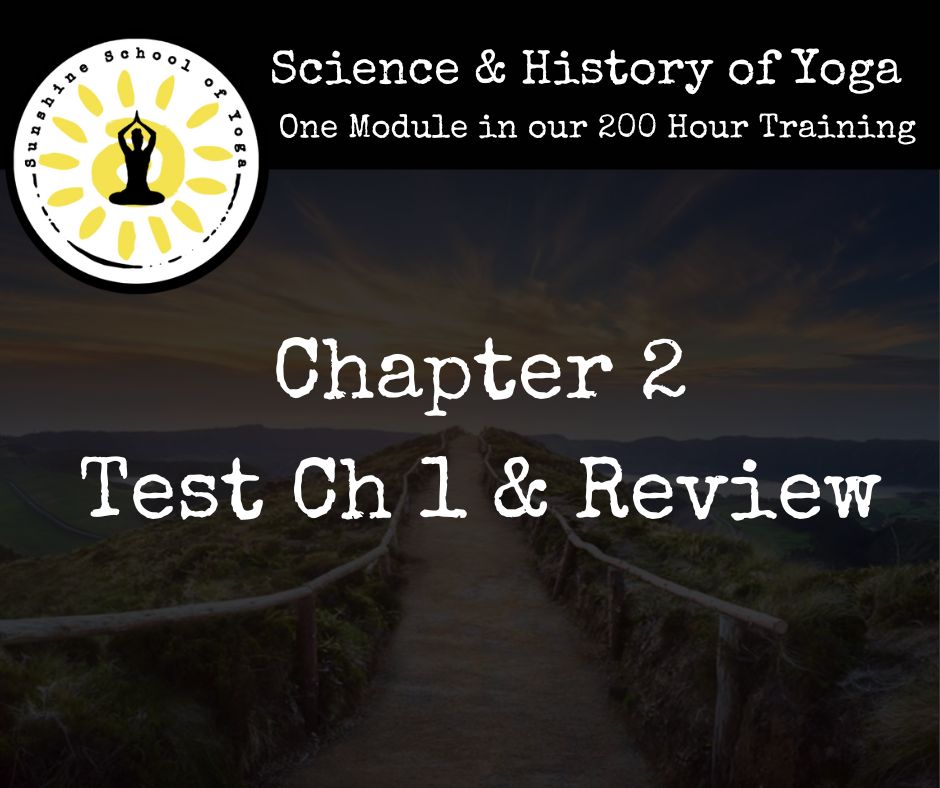
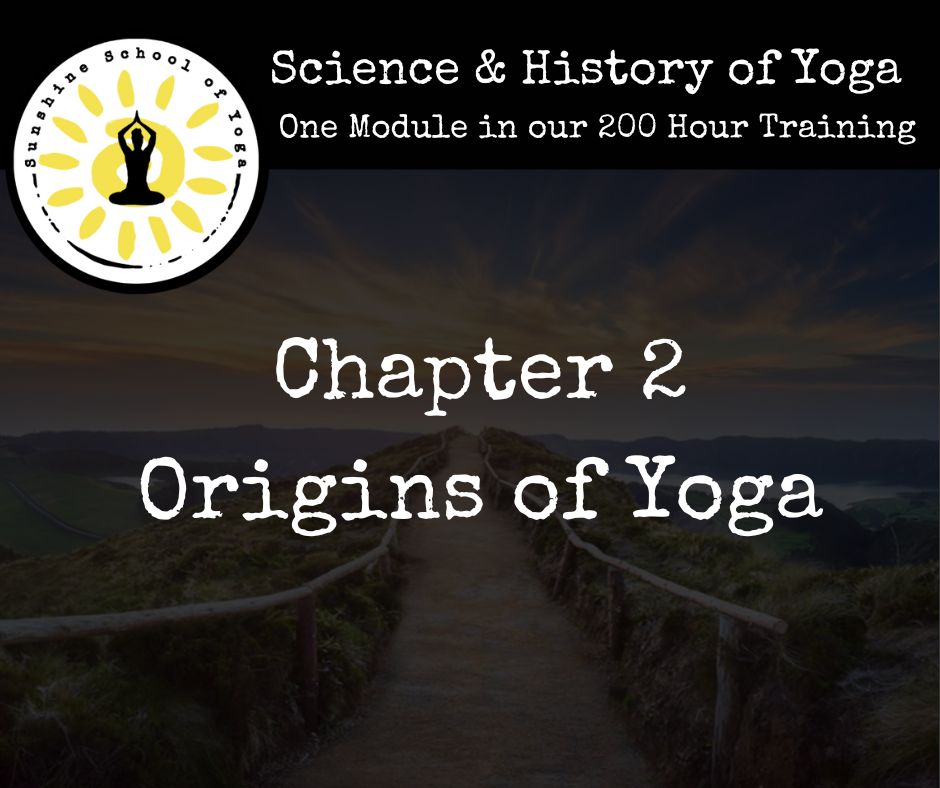
Taking a look back over millennia
to see the first written history of yoga and how it evolved.
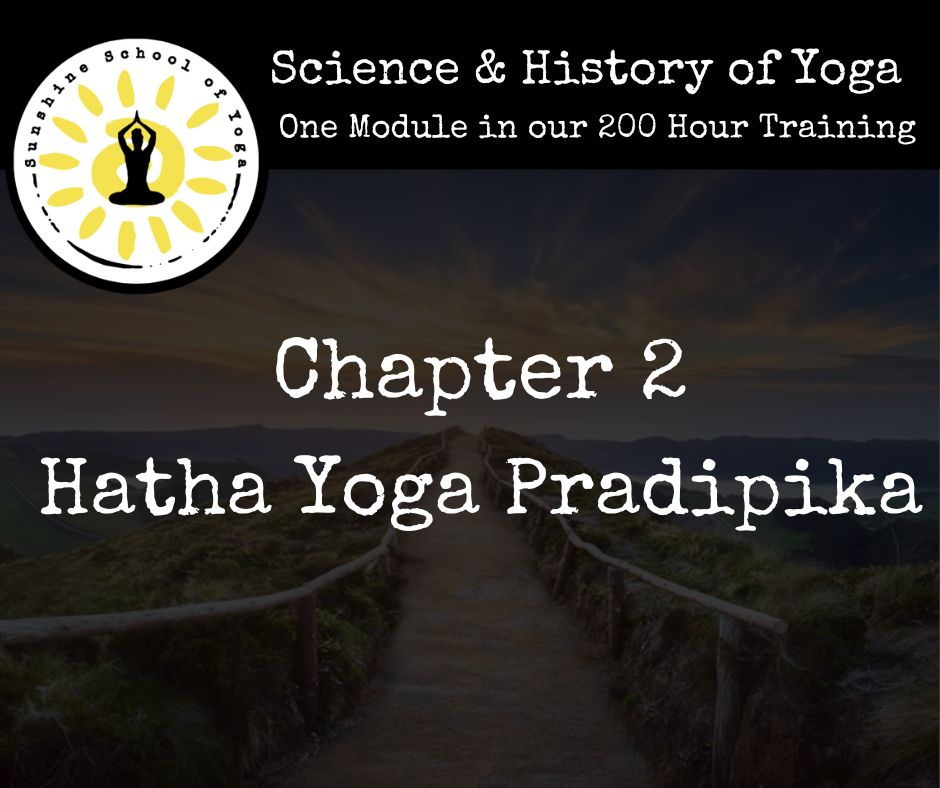
We will look back 1300 years
at the politics and see where two branches of yoga split.
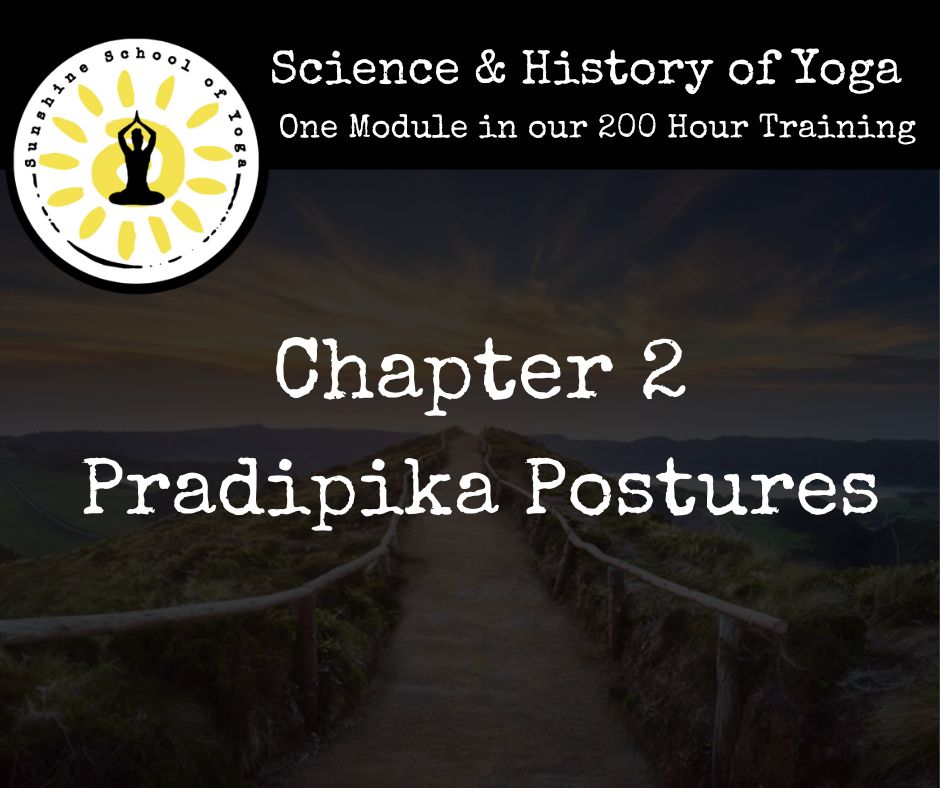
Review the practice and physical austerities of ancient yogis.
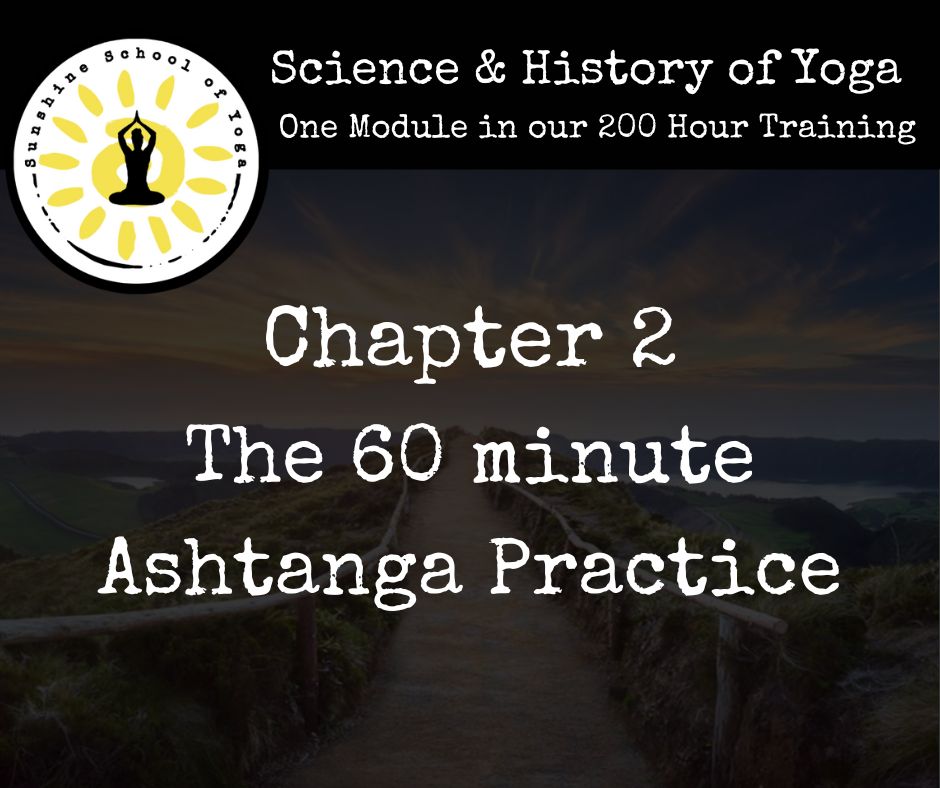
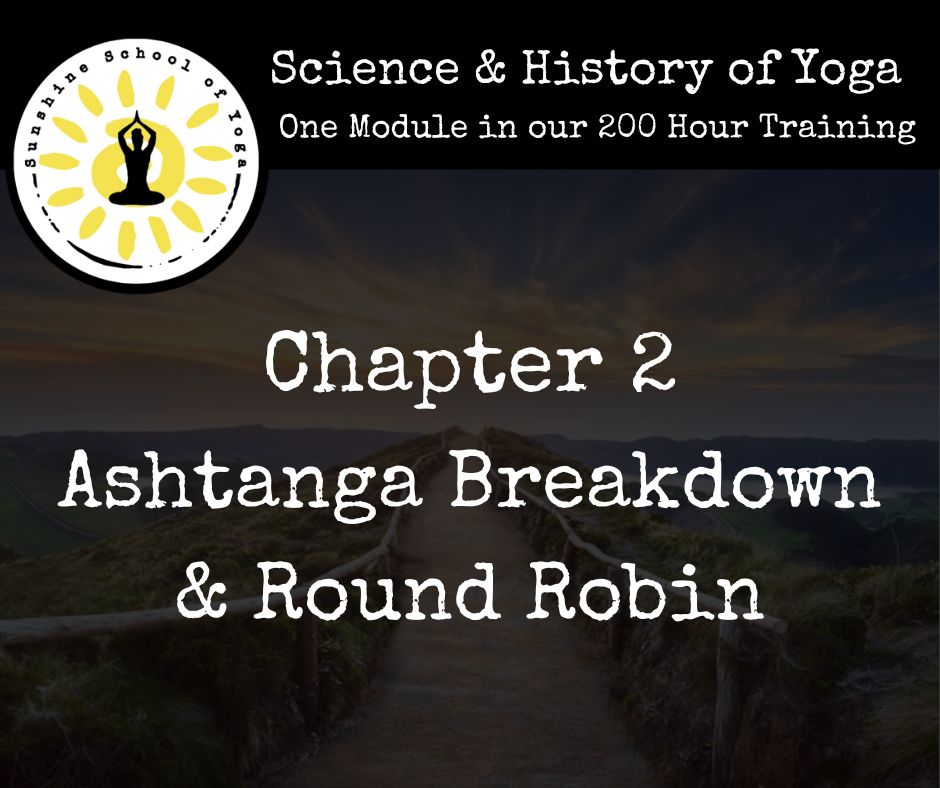
The Ashtanga Practice breakdown and the pranayama round robin.
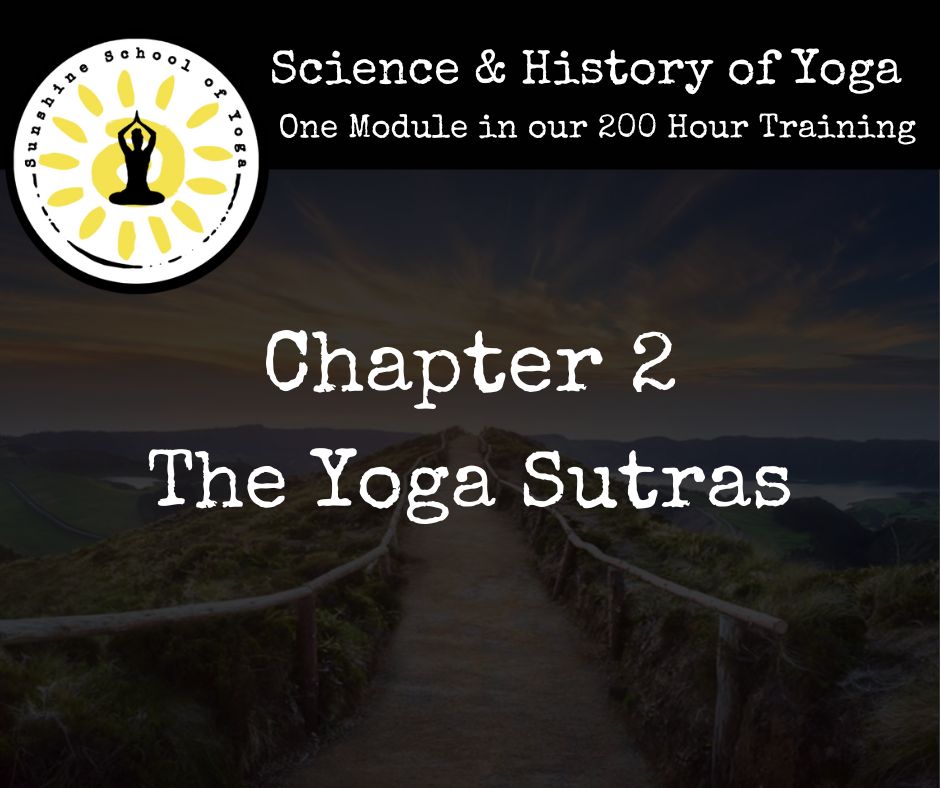
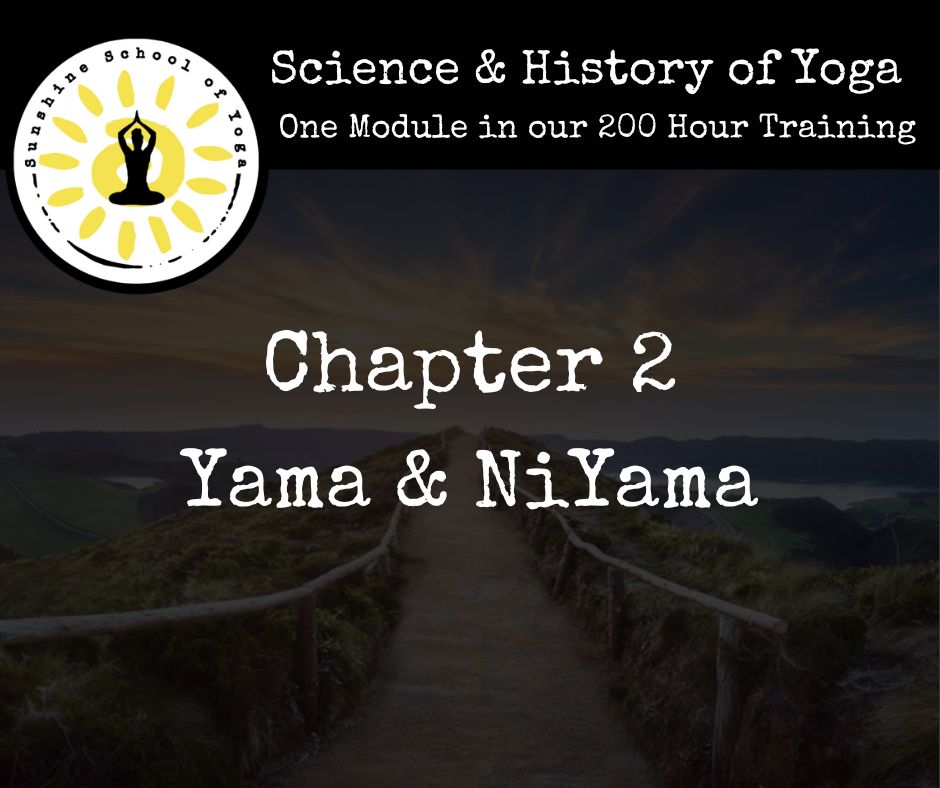
The Science and History of Yoga
Chapter 3
- The Science of Yoga
- Arm Balance and Inversions
- Musculoskeletal Movement and Connective Tissue
- Energetic Alignment vs. Classical Workshop
- Nervous System
- Brain Physiology
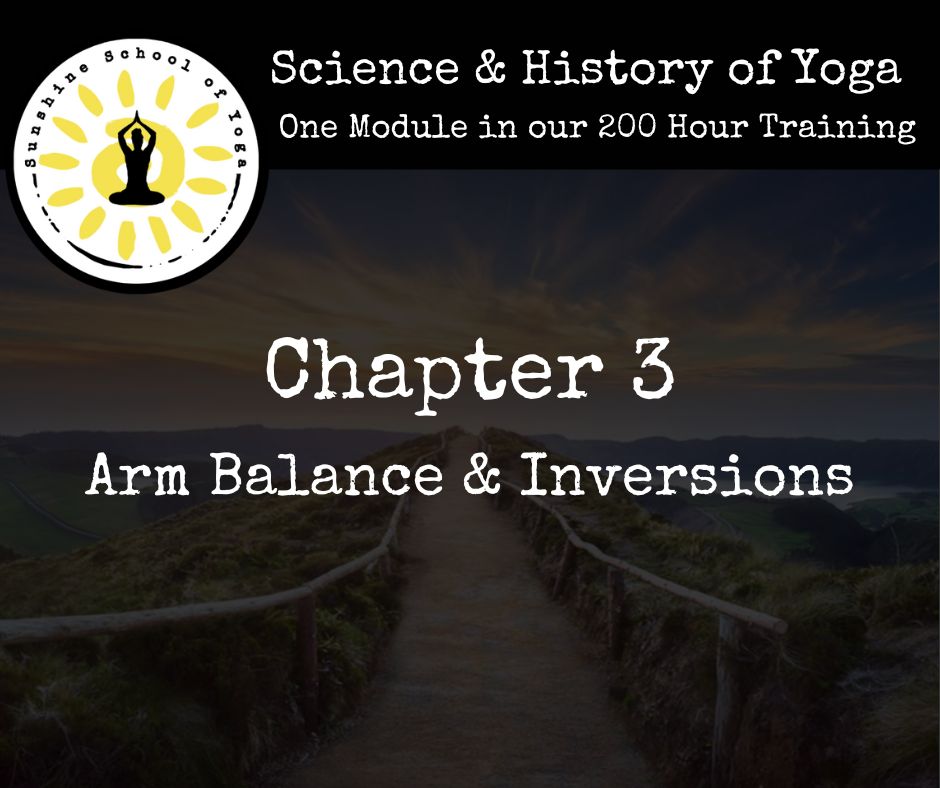
Learn how to incorperate advanced postures into your practice and safely teach them to student.
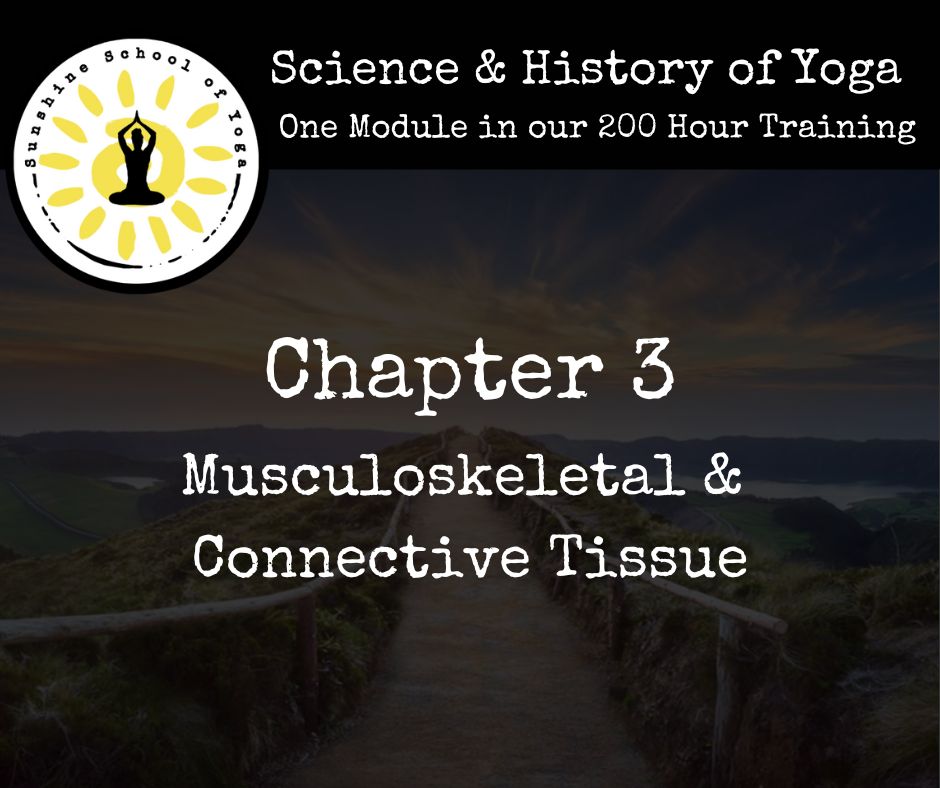
Learn the basics of our muscle , skeletal, and connective tissue systems.
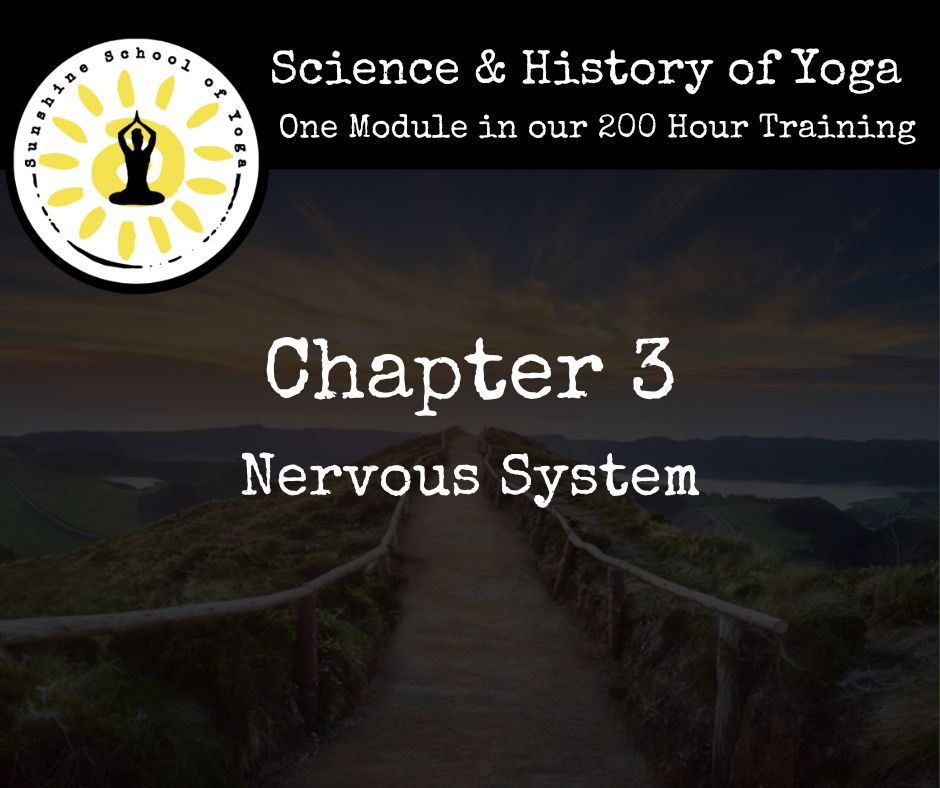
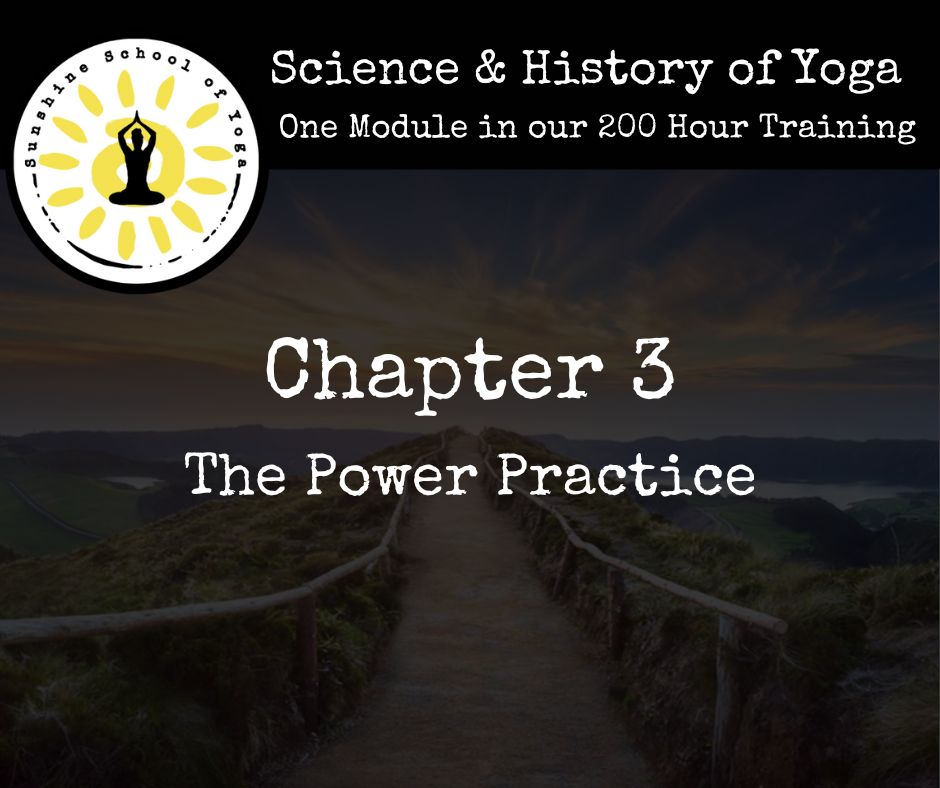
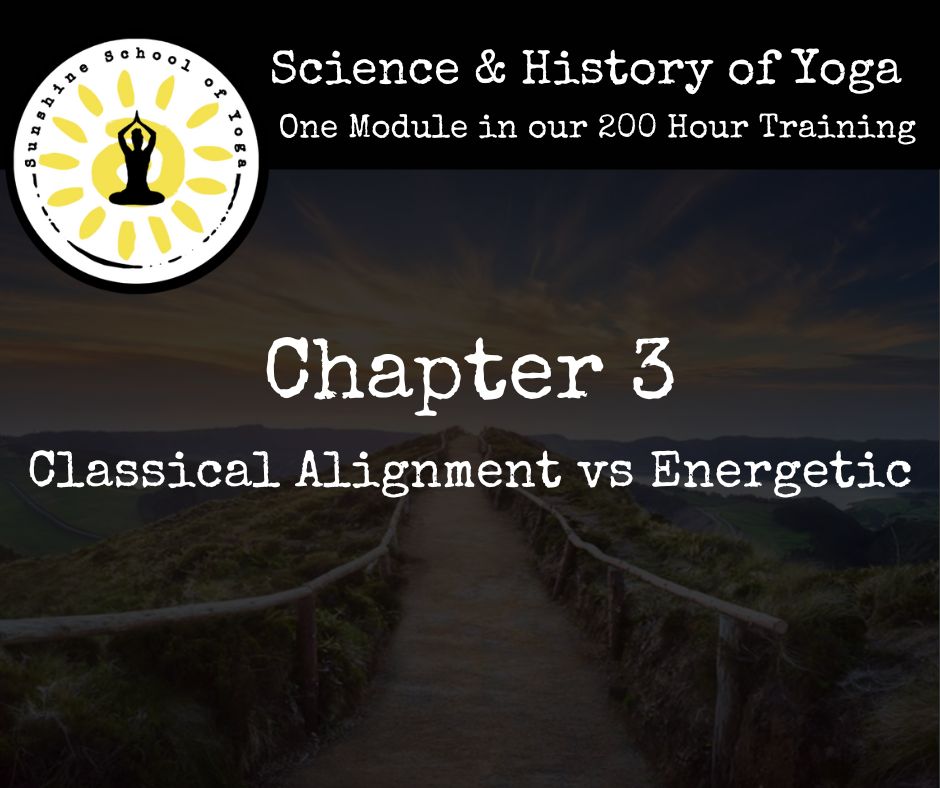
Learn the difference between classical alignment and energetic. How to teach postures to all body types safely.
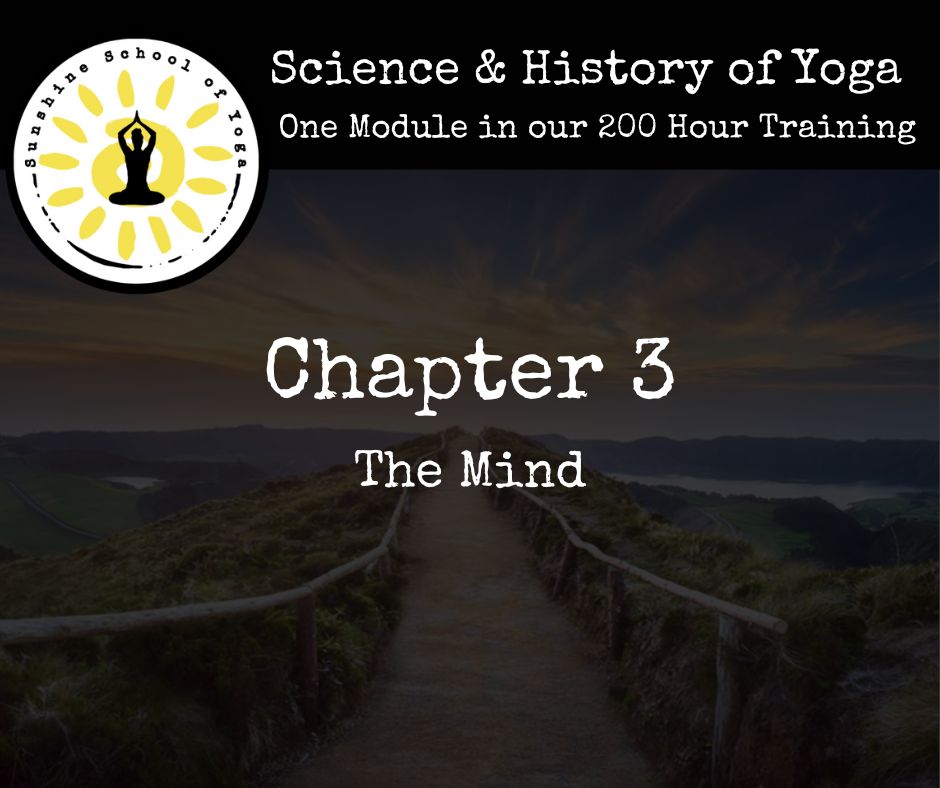
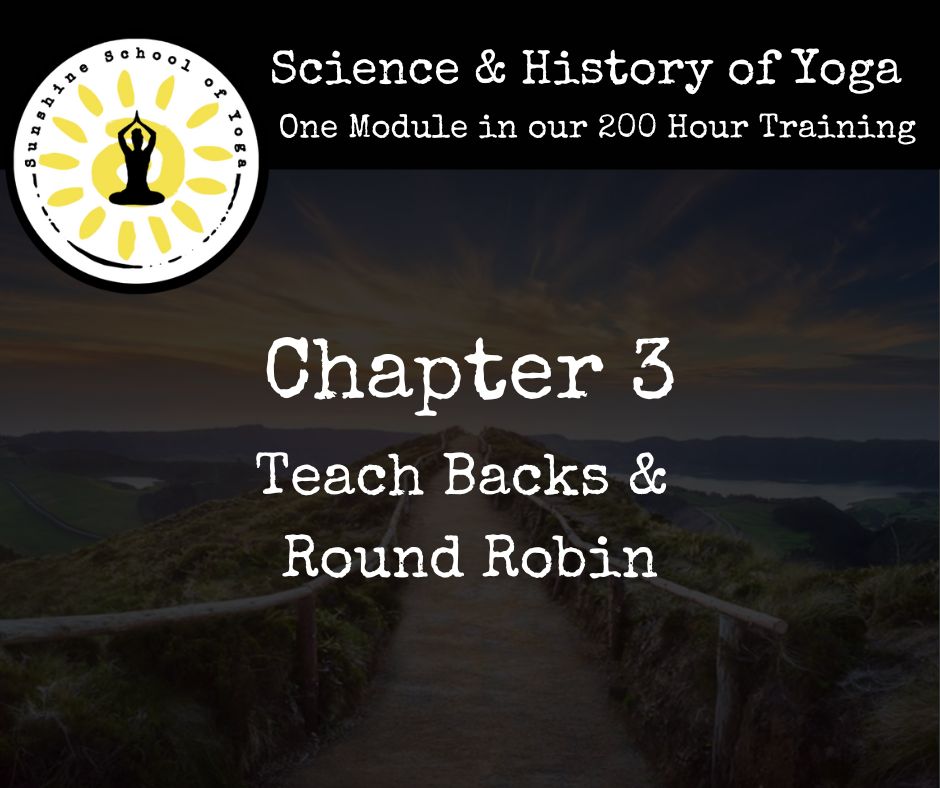
The Science and History of Yoga
Chapter 4
- Ayurveda, the Sister Science to Yoga
- Elements
- Doshas
- Dosha Test
- The Six Tastes
- Eating for Balance
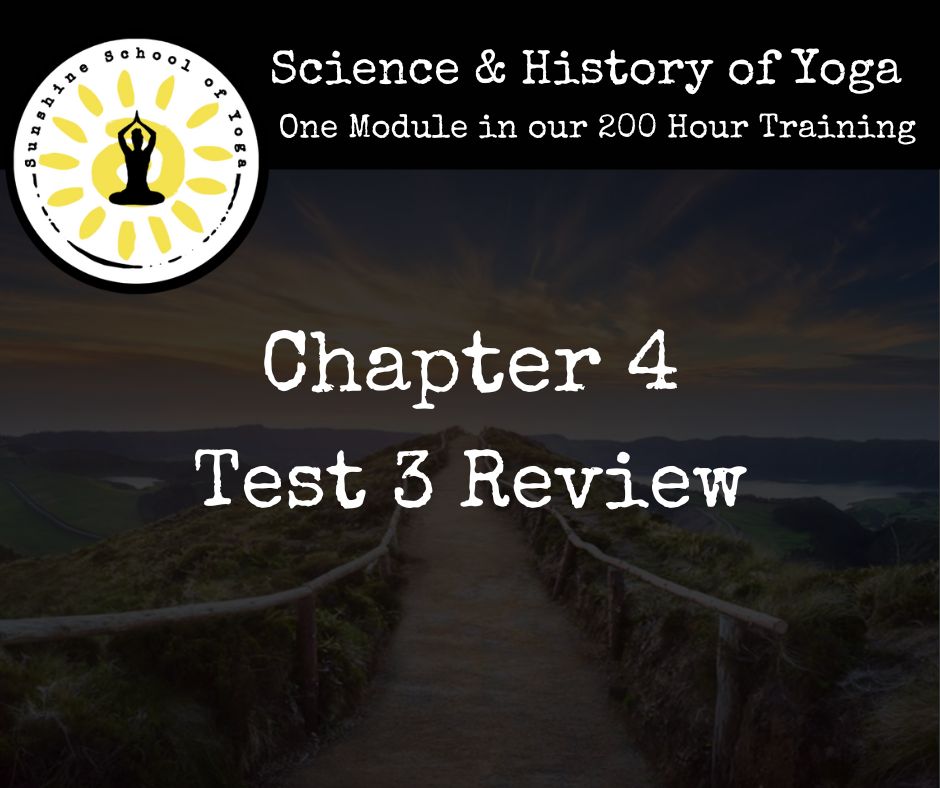
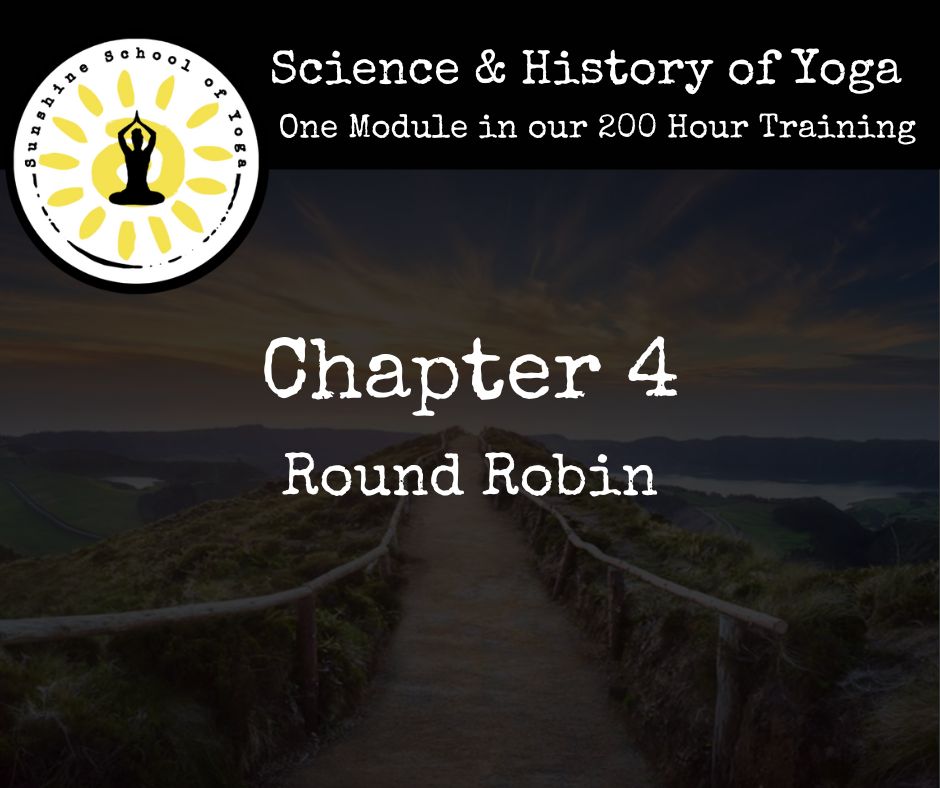
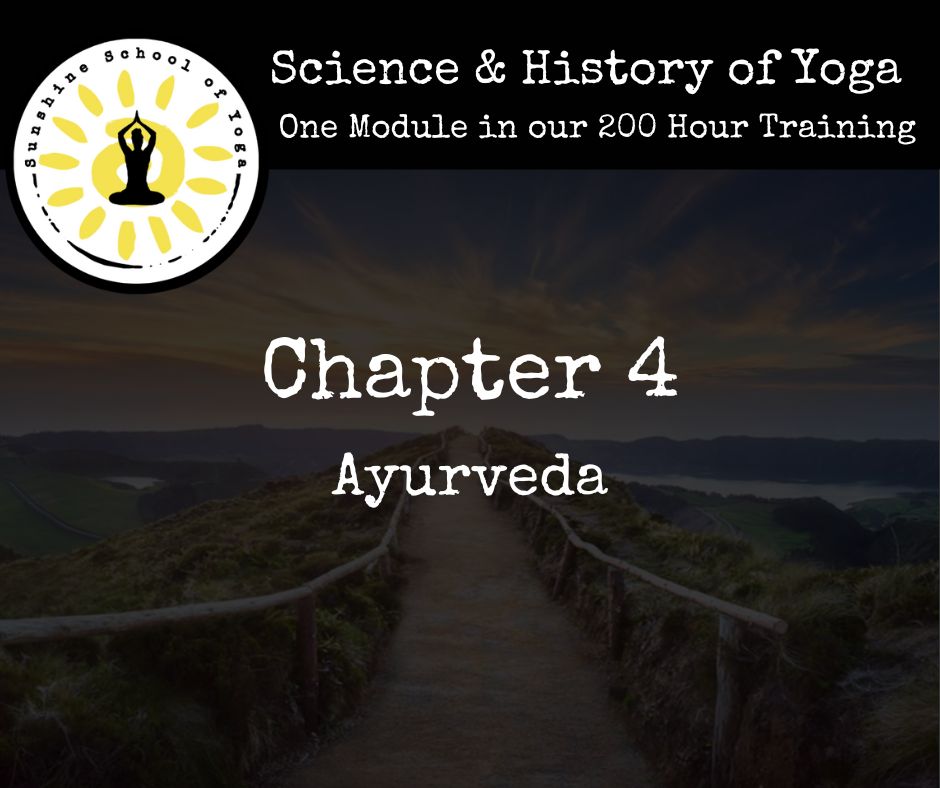
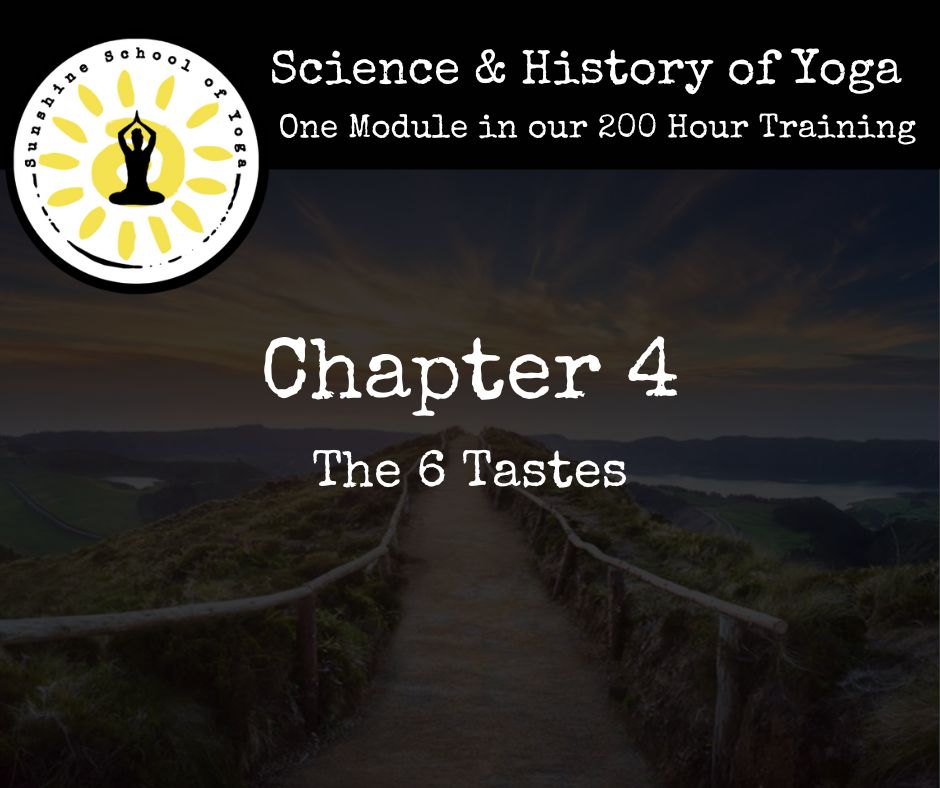
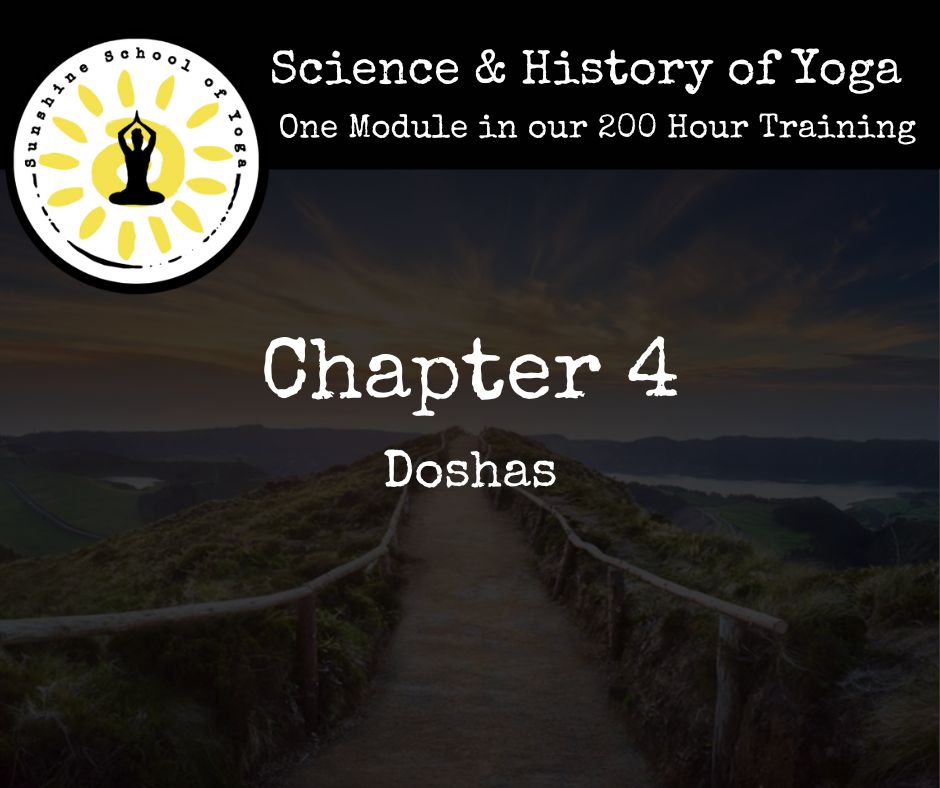
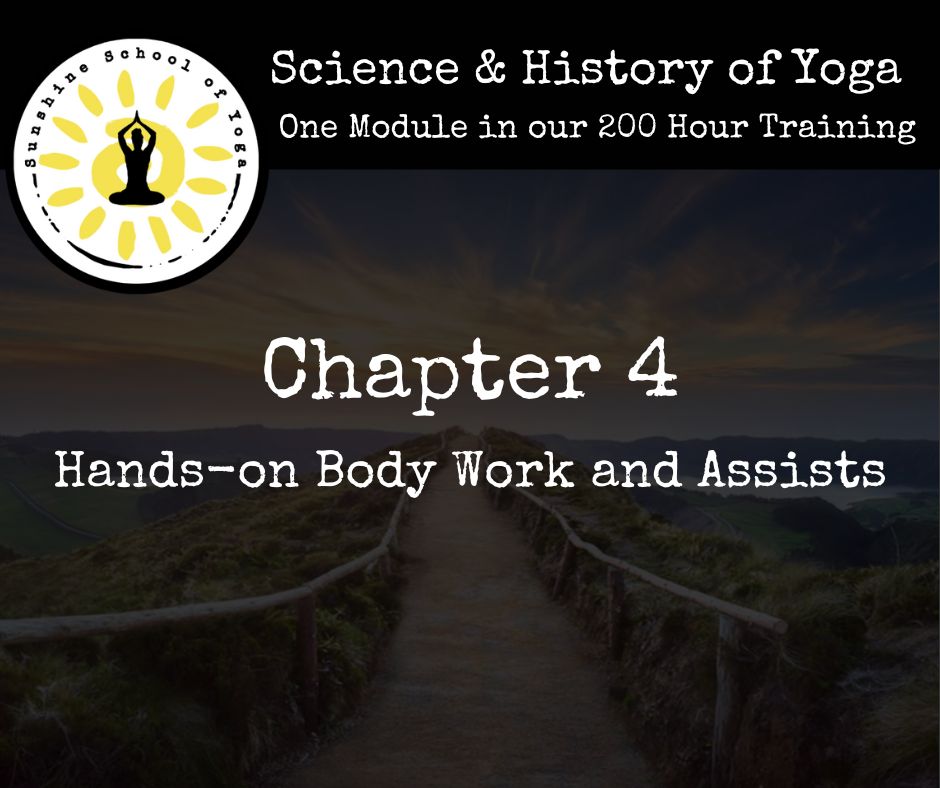
The Science and History of Yoga
Chapter 5
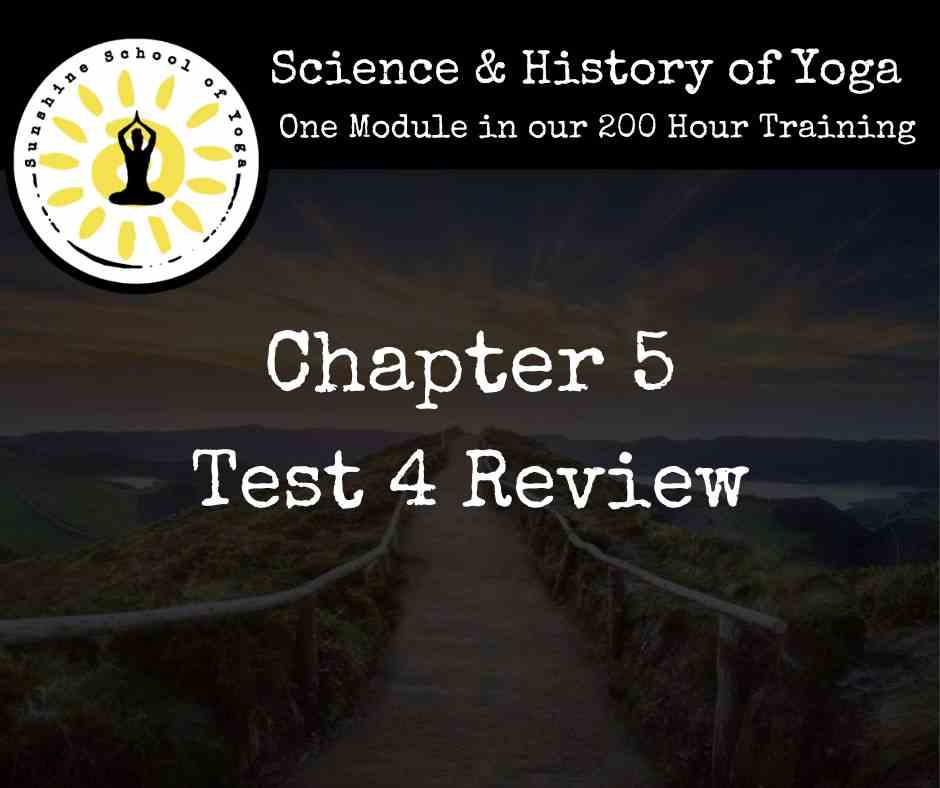
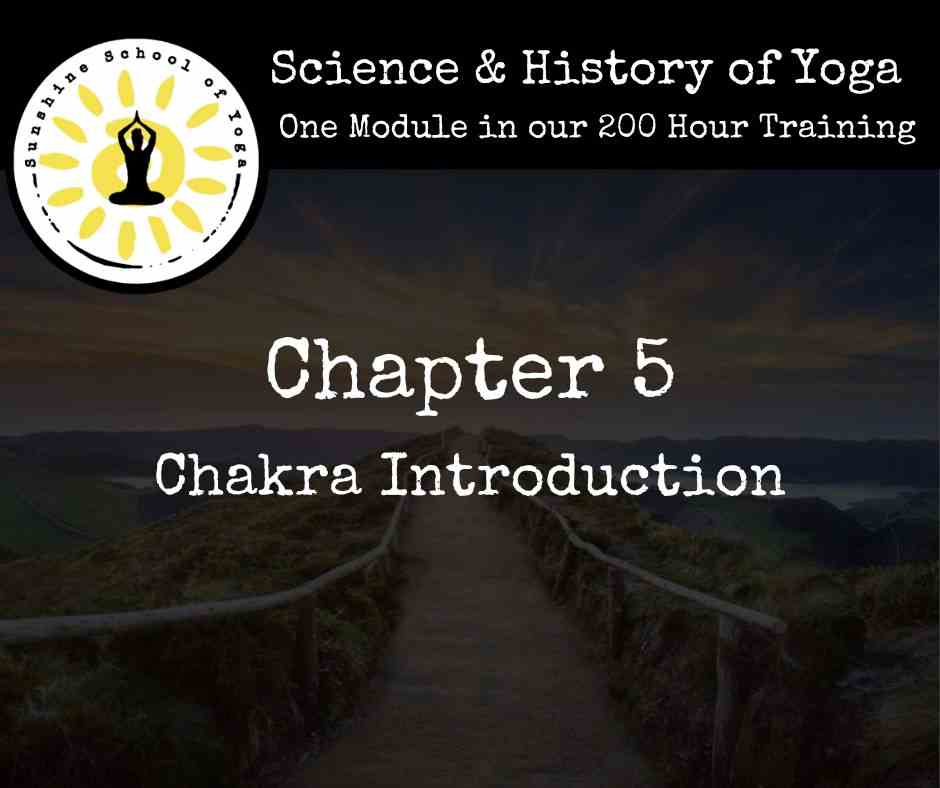
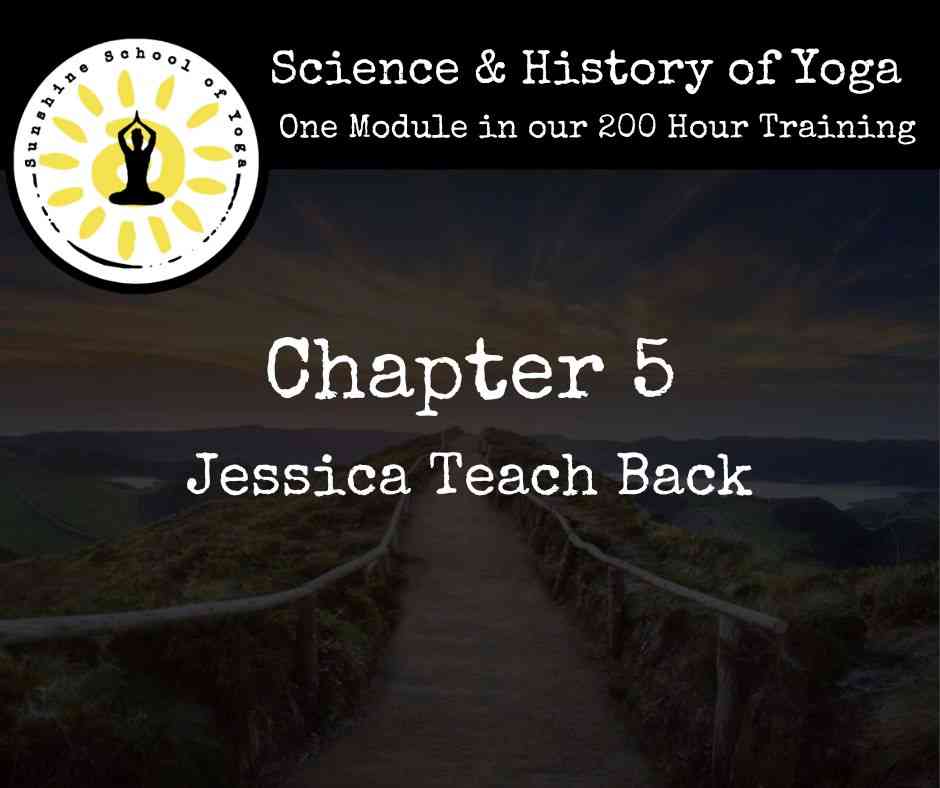
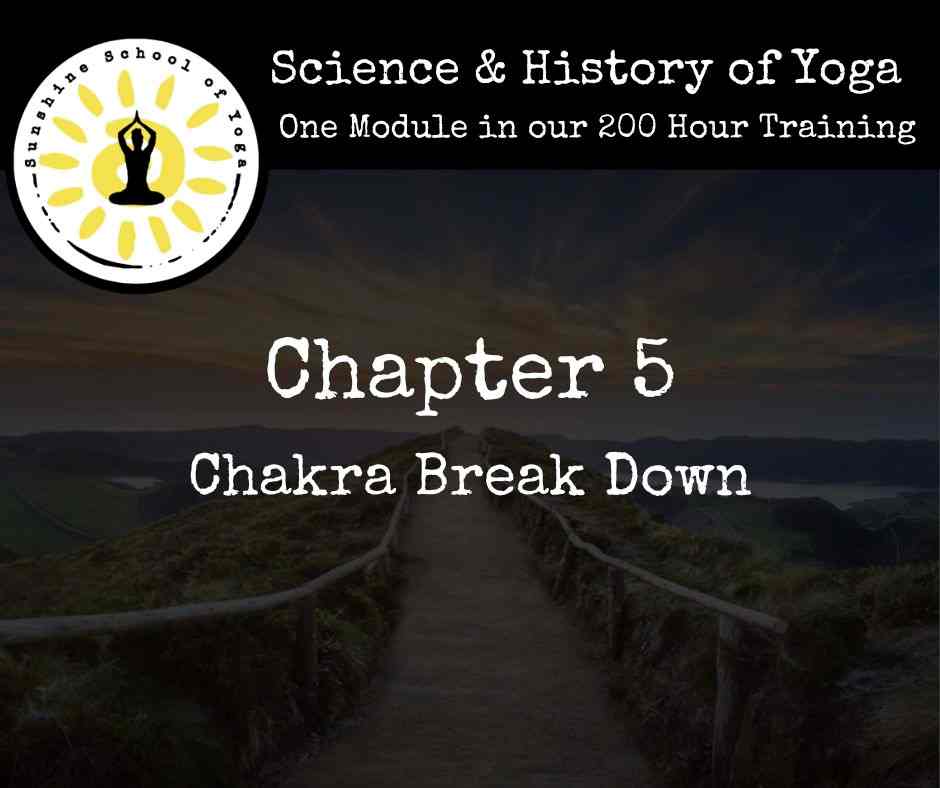
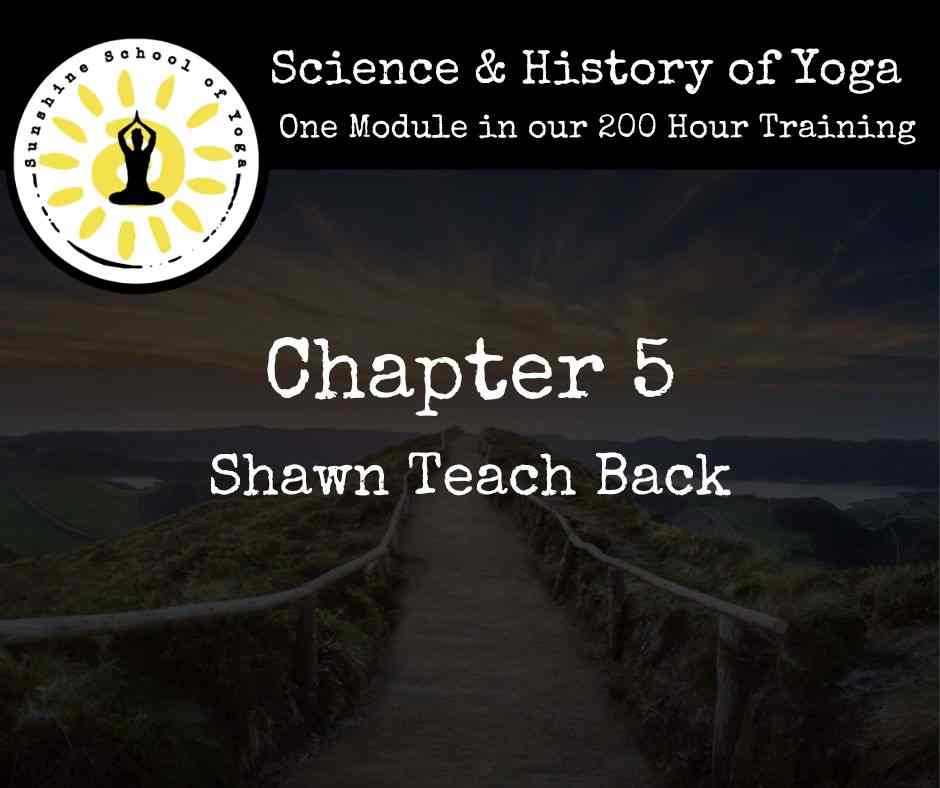
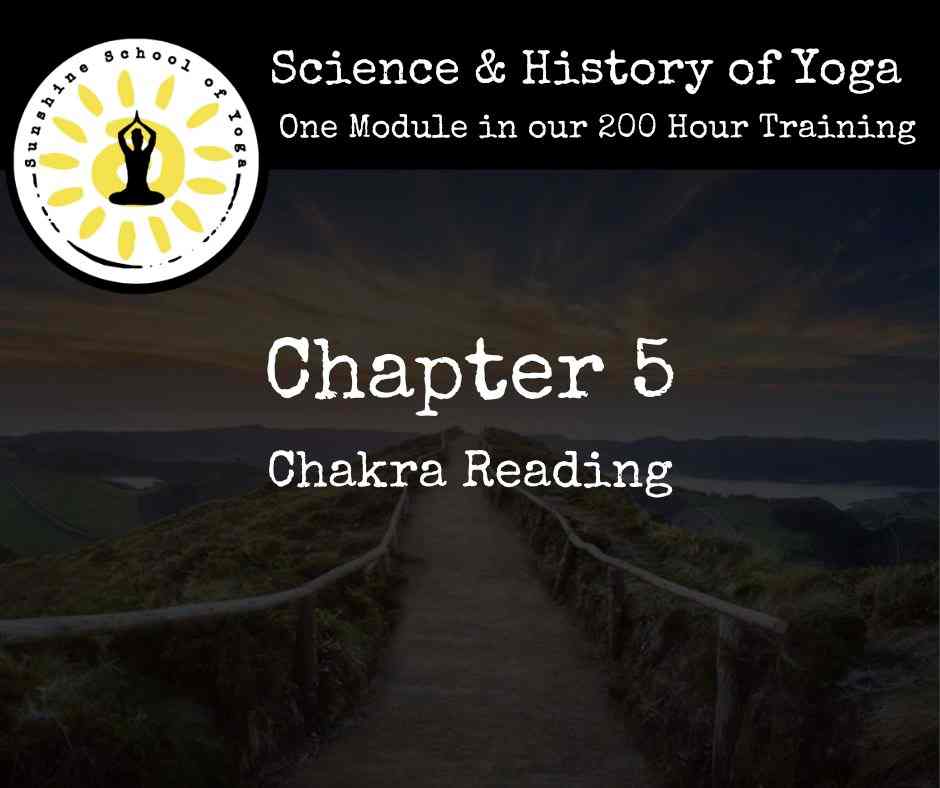
This completes The Science and History module. If you have completed The Art of Teaching please email lynn@sunshineyogashack.com
If not, continue to your second module.
Congratulations!
